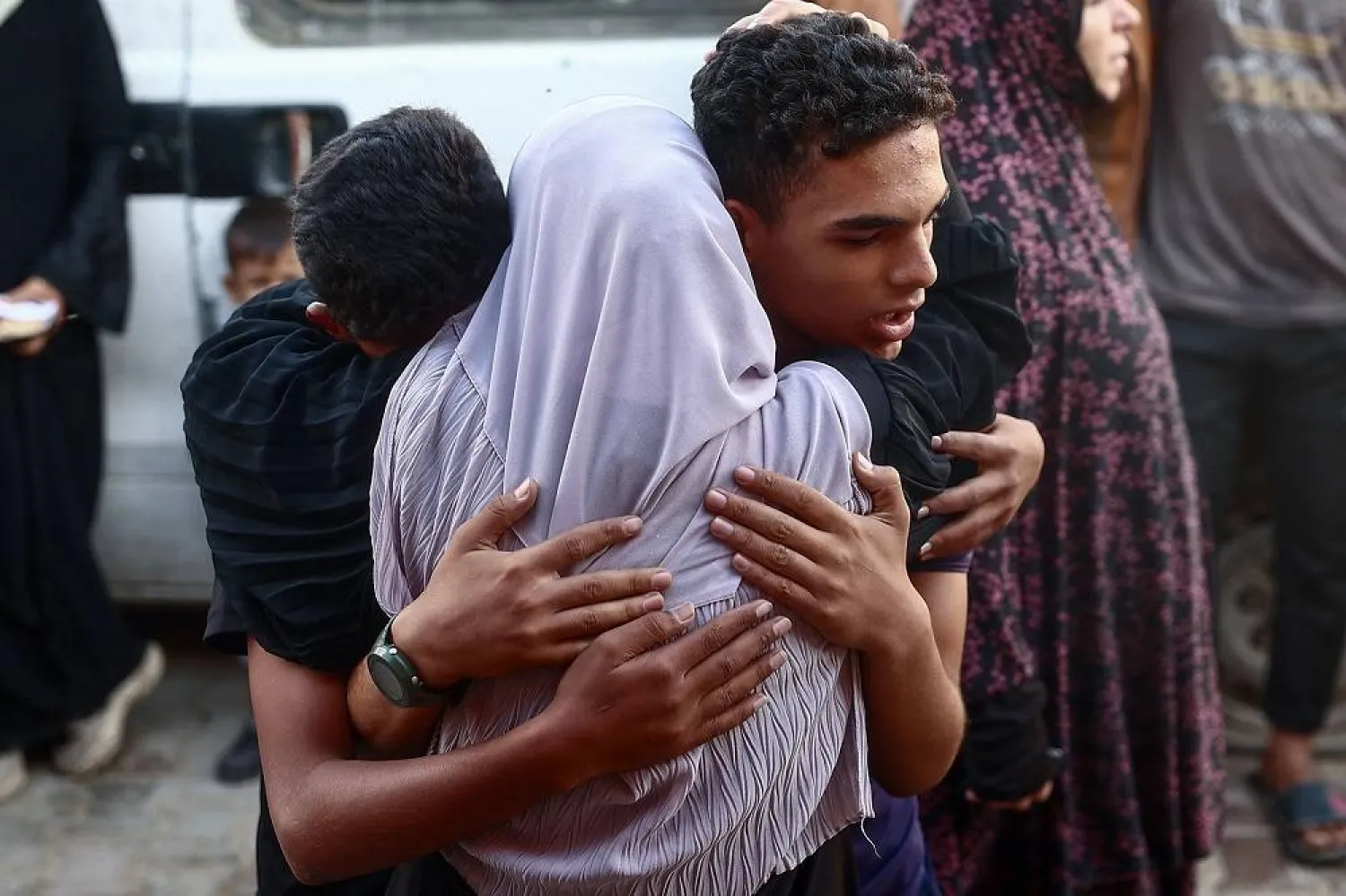Two strikes by Israeli forces killed at least 10 Palestinians, including four children, in the central Gaza Strip on Monday, medics said, as heavy rains flooded displaced residents' tent encampments.
The assault on Gaza, now nearly a year long, carried on even as international attention turned to the conflict in Lebanon and northern Israel between Hezbollah and Israel.
Palestinian health officials said at least five Palestinians were killed at a school sheltering displaced Palestinians in Nuseirat, one of Gaza Strip's eight historic refugee camps. The Israeli military said it targeted a Hamas command center embedded inside a compound that previously served as a school.
Later on Monday, an Israeli airstrike on a house in the city of Deir al-Balah, where a million people have taken shelter, killed a woman and four children, medics said. There was no immediate Israeli army comment on the incident.
Hamas' armed wing said on Monday its fighters managed to lure a convoy of Israeli vehicles into "a well-prepared ambush" on the supply line of the Israeli forces east of Rafah city, and attacked them with anti-tank rockets and already-planted explosive devices. There was no immediate comment from the Israeli military.
MORE MISERY
Heavy rains overnight piled more problems onto Gaza's displaced as downpours flooded tents, washed some of them away, and forced families out of their sleep.
Some placed water buckets on the ground to protect mats from leaks and dug trenches to drain water away from their tents. The price of new tents and plastic sheeting to prevent leaks shot up.
Ahmed Al-Burai, 30, said people made their tents of used sacks of flour, worn-out clothes, and nylon bags. As soon as it rained the water, and wind blew many tents away and flooded others.
"Everything is drowned, the blankets, the food, and the people in just a few hours of rain," Burai told Reuters over the phone from Al-Mawasi, a humanitarian-designated area in the southern Gaza Strip.
"Most of the displaced can't afford the new prices of tents and plastic sheeting. Just two days ago the price of plastic sheeting stood at 100 to 200 shekels ($27 to $54) and today it has risen to 700 and 800 shekels ($189 to $216) because of the greed of merchants," Burai said.
More shelters and supplies to help people cope with the coming winter were needed, the UN Palestinian refugee agency UNRWA said.
"As autumn begins, plastic and fabric are not enough to protect people against the rain and the cold," the relief agency posted on X.
Most of Gaza's 2.3 million have been displaced in nearly a year of warfare as Israeli air and artillery strikes have reduced much of the Palestinian enclave to rubble. More than 41,300 Palestinians have been killed in the Israeli assault, according to the Gaza health ministry.
The war, the deadliest bout in the decades-old Israeli-Palestinian conflict, was triggered on Oct. 7 when Hamas fighters attacked Israel, killing 1,200 people and taking about 250 hostage, according to Israeli tallies.









